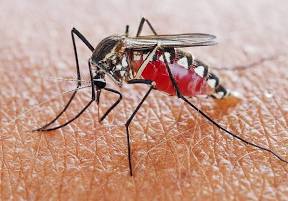By Abdulrasaq Kamaldeen

Over the past month, Malaria has rapidly spread throughout the campus of Usmanu Danfodiyo University Sokoto (UDUS), affecting a significant number of students. It’s become a widespread issue, impacting a large percentage of the student population and, in turn, their academic progress.
Malaria is a life-threatening disease transmitted through the bite of infected Anopheles mosquitoes. These mosquitoes carry the Plasmodium parasite, which enters the bloodstream when the mosquito bites. Once inside the body, the parasites travel to the liver to mature. After a few days, mature parasites enter the bloodstream, infecting red blood cells. Malaria can also be transmitted through blood transfusions and contaminated needles.
The students battling Malaria are resorting to mosquito nets and repellent medications to protect themselves from this parasitic disease. Many students struggle to balance their academic responsibilities with their health issues. During this semester, the school clinic has witnessed a surge in students seeking medical attention due to malaria symptoms. Medications and injections are administered, and some may even require hospitalization.
The common symptoms of Malaria include extreme fatigue, impaired consciousness, convulsions, difficulty breathing, dark or bloody urine, jaundice, and abnormal bleeding.
Malaria is primarily caused by infected mosquitoes that transfer the parasite from one person to another. Mosquitoes breed in warm, moist areas, with stagnant water being their preferred breeding ground. Eliminating sources of stagnant water, such as pool gutters and dirty areas, can help reduce mosquito populations.
Strategies for Malaria Prevention
The World Health Organization advises that malaria prevention can be achieved by both avoiding mosquito bites and taking appropriate medications. It is recommended to consult with a healthcare professional about the use of medicines such as chemoprophylaxis before traveling to regions where malaria is prevalent.
Additionally, WHO emphasizes the following measures to combat malaria effectively:
1-Utilize mosquito nets when sleeping in areas with a high risk of malaria transmission.
2-Apply mosquito repellents containing DEET, IR3535, or Icaridin after dusk to prevent mosquito bites.
3-Use mosquito coils and vaporizers to deter mosquitoes.
4-Wear protective clothing to minimize exposure to mosquitoes.
5-Install window screens to keep mosquitoes out of living spaces.
